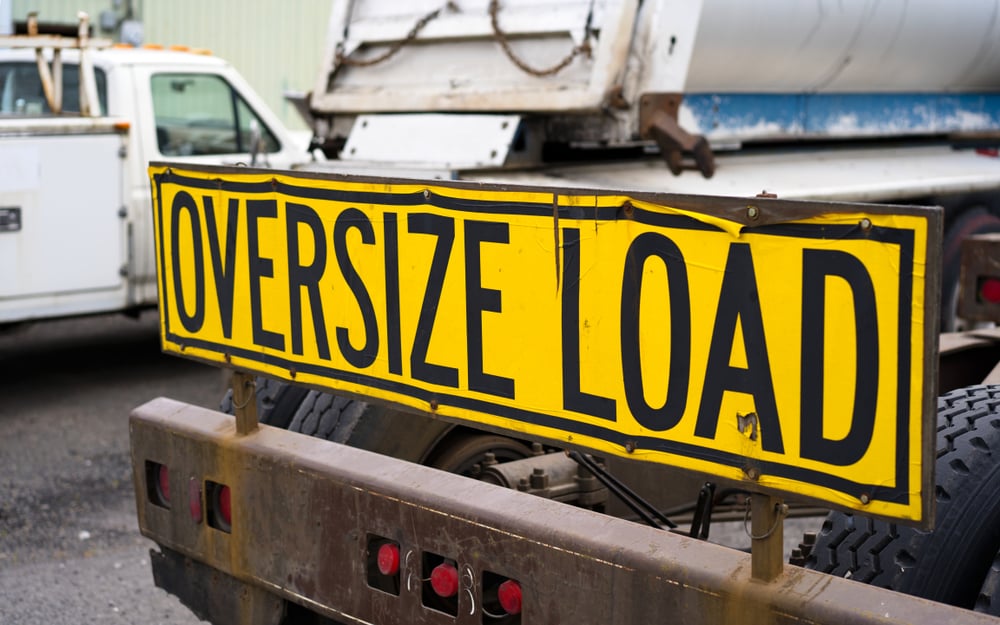REDWOOD LOGIN
Redwood PortalLTL
SCS
SCS Support
Rockfarm

Heavy Haul is a term that is used to describe any shipment that is larger than most standard loads. We aren’t talking just a few pallets of goods, either. We are talking about massively sized freight, like spools of pipeline and industrial machinery for large construction projects.
Generally speaking, a heavy haul is any load that exceeds the legal limit in regards to the physical dimensions or weight of goods or equipment being transported. More often than not, a heavy haul is usually performed for the transportation of large construction materials and machinery.
Due to the fact that it exceeds those limitations, this type of shipment has a few special requirements. This will include special permits and documentation before being allowed on the road. These permits vary from state to state but they will inform the driver of how many days their shipment is permitted to be on the road and during what hours of the day.
Additionally, a heavy haul may be required to install additional flags on their truck, affix an oversized load banner to the back end of the load, or even being escorted by pilot cars.
Yes, there is a lot involved in heavy haul shipping.
But, don’t worry, we’ve put together 5 of our best tips to help you ease into the process as stress-free as possible.
Before you can begin the heavy haul shipping process, you will need to know the dimensions of your freight.
Without this information ready, you will not be able to obtain the proper permits required to legally transport your freight. A few inches or even several feet may not matter much for standard shipments where all the goods are contained within a truck. But with heavy haul shipping, just a few inches can mean more money spent and new contracts drafted up.
Heavy Haul loads are just that; heavy. Almost always, these oversized loads are things like massive pieces of building materials or large pieces of irrigation systems.
It should go without saying, but lifting such heavy pieces of materials or equipment is no easy task. You may quite possibly need to have a crane or forklift operator onsite to get it loaded. You may even need to plan to have an operator at its destination to unload it. Figure this issue out before you book a driver, or you are in for a big mess.
Permits that are issued for heavy hauls, more often than not, come with some additional requirements. These requirements could include but are not limited to things like installing flags or rotating lights to the widest point of the load.
There is quite a lot of steps in this process. Behind the scenes, there is a lot of stuff that goes into the actual shipping of your heavy freight. Luckily, if you are able to outsource the job to a reputable carrier, you are likely not going to have to worry about handling more than your share of the load.
Most of the time, carriers will handle all of the filings for permits through the Department of Transportation. This is then included in the total of your invoice.
Some carriers even have their own in-house service that can get your permits issued even quicker.
It is important to note that a majority of carriers will handle all the permitting by default. This is not a requirement or a universal practice, so check with your carrier service before signing off on anything just to be sure you have all your ducks in a row, so to speak.
No matter what kind of shipping you are doing, there is bound to be something here or there that you overlooked or did not expect to become a problem.
And when those issues arise, you need to be able to act quickly. Need to pay an extension on a permit for that load that got delayed due to road closures. Does the truck need to be re-routed? Did you remember to create a backup plan for these sorts of things?
It is always good to hope for the best outcome possible for any delivery we put on the road. This is especially true when you are shipping huge pieces of equipment and construction materials. And while you shouldn’t let your worries get the best of us, you should also remain aware of the fact that not everything always goes as planned. And the more you know, the better measures you can take to avoid those potential issues.
Heavy Haul shipping is a complex beast, no doubt about it. But, with just a bit of planning with a professional 3PL like Redwood Logistics, your Heavy Haul can be out on the road in no time.
Contact us today and let us help you put together a solid heavy haul game plan to get you on the road quickly and without any of the fuss.